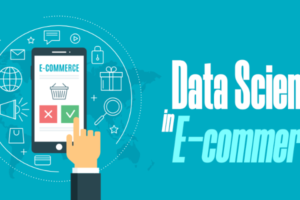
Artificial Intelligence and Machine Learning have reorganized many industries, and healthcare is no exception. A subgroup of artificial intelligence and machine learning access computers to learn from experience without being explicitly programmed, whereas artificial intelligence (AI) refers to the emulation of human intellect in machines created to think and learn like humans. The healthcare industry has recently seen a substantial transformation with the incorporation of AI and ML technologies.
The healthcare industry plays an important role in maintaining and improving human health. It involves various processes, including diagnostics, treatment, drug development, and patient care. With the rise of AI and ML, healthcare professionals can leverage data-driven insights and predictive analytics to significantly enhance medical outcomes and patient experiences.
Advancements in AI and ML in Healthcare
AI-powered Diagnostics
One of the primary applications of AI in healthcare is its expertise in analyzing medical images and aid in diagnostics. AI algorithms can process a wide range of data from MRI scans, X-rays, and CT scans, allowing for more accurate detection of diseases and abnormalities. This advancement expedites diagnosis, enabling early interventions and improved patient outcomes.
Personalized Treatment Plans
AI and ML technologies enable healthcare providers to develop personalized health treatment plans for patients based on their medical history, genetic information, and lifestyle data. This approach ensures that treatments are tailored to individual needs, leading to more effective results and reduced chances of adverse reactions.
Drug Discovery and Development
Traditional drug discovery and development processes are time-consuming and expensive. AI and ML algorithms can analyze complex biological data and identify potential drug candidates more efficiently. These technologies accelerate the drug development pipeline and promise to discover breakthrough treatments for various diseases.
Virtual Health Assistants
Virtual health assistants powered by AI are changing the way patients interact with healthcare services. These assistants can provide round-the-clock support, answer medical queries, and even schedule appointments. They streamline administrative tasks, freeing up healthcare professionals to focus on more critical patient care.
Predictive Analytics for Patient Care
AI and ML facilitate predictive analytics in healthcare, which enables early identification of high-risk patients. AI algorithms can predict potential health issues by analyzing patient data and health trends, allowing healthcare providers to intervene proactively and prevent complications.
Benefits of AI and ML in Healthcare
Improved Accuracy and Efficiency
AI-powered tools exhibit high accuracy levels, reducing diagnostic errors and improving treatment precision. Automation of administrative tasks also enhances the overall efficiency of healthcare systems.
Enhanced Disease Detection and Diagnosis
AI technologies can analyze vast datasets and detect subtle patterns that might go unnoticed by human healthcare providers. This early detection leads to timely diagnosis and treatment, improving patient outcomes.
Better Patient Outcomes and Experience
Personalized treatment plans and virtual health assistants contribute to better patient experiences, as they receive individualized attention and support throughout their healthcare journey.
Cost Savings and Resource Management
By streamlining processes and optimizing resource utilization, AI and ML help reduce healthcare costs while ensuring that patients receive quality care.
Ethical Considerations in AI and ML Adoption
Privacy and Data Security
As AI relies on vast amounts of patient data, ensuring privacy and data security is crucial to maintaining patient trust and complying with regulations.
Bias and Fairness in Algorithms
Biased data can influence AI algorithms, leading to potential disparities in healthcare outcomes. Addressing these biases is essential to ensure fair treatment for all patients.
Human-AI Collaboration and Decision-Making
While AI can provide valuable insights, human healthcare professionals should maintain a collaborative approach to decision-making, considering patient care’s ethical, social, and emotional aspects.
Challenges and Limitations of AI and ML in Healthcare
Data Quality and Availability
AI algorithms require high-quality, diverse datasets for training. Ensuring the availability of such data can be challenging, especially in smaller healthcare facilities.
Regulatory and Legal Hurdles
The adoption of AI and ML in healthcare is subject to strict regulations, which can pose hurdles in implementation and compliance.
Resistance to Technology Adoption
Some healthcare professionals and patients may be hesitant to embrace AI and ML technologies due to unfamiliarity or fear of job displacement.
AI Misinterpretation and Errors
AI systems are imperfect and can make errors, leading to incorrect diagnoses or treatment recommendations. It is essential to have human oversight and continuous improvement of AI models.
Real-World Applications of AI and ML in Healthcare
Radiology and Imaging
AI algorithms are increasingly used to assist radiologists in interpreting medical images, improving accuracy and efficiency in diagnosing conditions like tumors, fractures, and cardiovascular diseases.
Oncology and Cancer Treatment
AI and ML technologies help oncologists analyze genetic data and treatment responses, enabling personalized cancer therapies for better patient outcomes.
Chronic Disease Management
AI-powered remote patient monitoring systems aid in managing chronic diseases like diabetes and heart conditions by providing real-time data and personalized insights.
Telemedicine and Remote Patient Monitoring
AI facilitates telemedicine by enabling virtual consultations, remote monitoring, and the provision of medical advice through digital platforms.
The Future of AI and ML in Healthcare
Advancements in AI Algorithms
As AI technology evolves, more sophisticated algorithms will be developed, leading to even greater accuracy and broader applications in healthcare.
Integration of AI with IoT and Wearable Devices
AI integration with Internet of Things (IoT) devices and wearables will enhance data collection and analysis, enabling continuous health monitoring and personalized interventions.
AI and ML in Healthcare Policy and Research
AI and ML will be important in shaping healthcare policies and driving medical research, leading to more evidence-based and patient-centric practices.
Conclusion
Artificial Intelligence and Machine Learning (ML) a part of integration in the healthcare industry, represents a remarkable advancement that promises to revolutionize patient care and medical outcomes. AI-powered diagnostics, personalized treatment plans, and predictive analytics are just a few examples of the transformative potential of these technologies. While there are ethical considerations and challenges to address, the benefits of AI and ML adoption in healthcare are undeniable. As technology evolves, the future holds exciting possibilities for improving human health and well-being through AI and ML innovation.
FAQs
How is AI different from traditional computer programs in healthcare?
AI goes beyond traditional programming by enabling machines to learn from data and change their responses accordingly, allowing for more intelligent and dynamic decision-making.
Can AI replace human healthcare professionals?
AI complements human healthcare professionals by providing valuable insights and support. However, human expertise and empathy are still essential for comprehensive patient care.
Are there any risks associated with AI-powered diagnostics?
While AI diagnostics offer high accuracy, there is a risk of misinterpretation or bias if the algorithm needs to be properly trained and validated with diverse datasets.
How is AI contributing to drug discovery?
AI accelerates drug discovery by analyzing vast datasets, identifying potential drug candidates, and predicting their efficacy and safety profiles.
What measures are in place to ensure patient data privacy in AI applications?
To secure patient data from unauthorized access or breaches, healthcare organizations must follow stringent data protection standards and put in place strong security measures.





